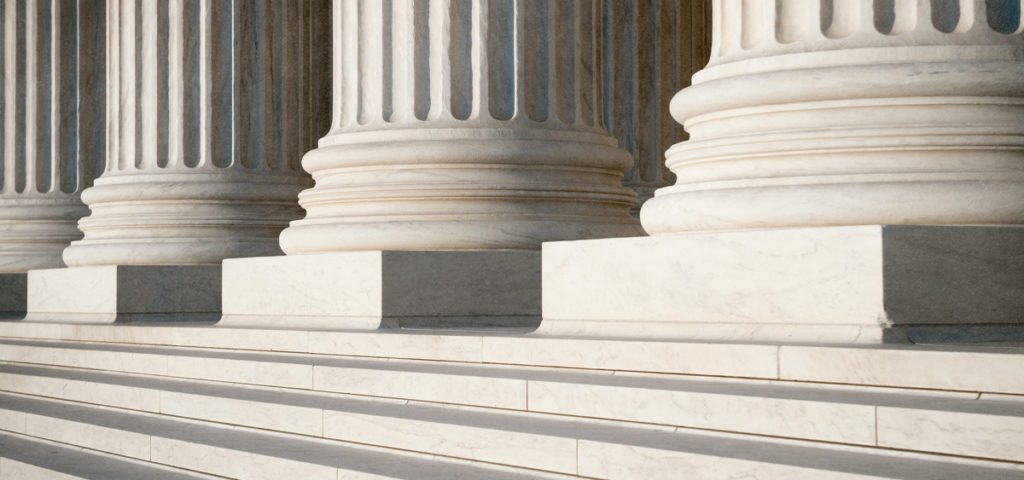The Biden Administration’s Department of Justice has asked the U.S. Supreme Court to not take up a question relating to company compensations for their workers’ doctor-prescribed medical cannabis.
DOJ Requests Supreme Court Not Take Up Case Involving Medical Cannabis & Employment

Full story continued below.
Advertisement
The U.S. Department of Justice (DOJ) has requested the Supreme Court not take up a question related to cannabis involving two cases out of Minnesota, Marijuana Moment reports. In both cases, employees had asked their employers to pay for their medical cannabis following on-the-job injuries but were denied, triggering the lawsuits.
The employees, and groups like Empire State NORML, argued that since employers do not have to provide the medical cannabis itself, simply compensating employees for their medicine would not run afoul of the Controlled Substances Act. Eventually, the Minnesota Supreme Court ruled in favor of the employers, finding that the employer did not have to provide for their employees’ medical cannabis because federal law outlawing cannabis preempts state law, the report says.
The case went to the U.S. Supreme Court after the two employees appealed the Minnesota Supreme Court’s decision. The court then sought input from top lawyers at the Justice Department. On Monday, the Solicitor General’s Office replied with an amicus curiae brief, which recommended that the court remain silent on the question, suggesting the issue would be best addressed by the executive or legislative branch.
“The petitions in these cases, which present a novel question in a rapidly evolving area of law, do not warrant this Court’s review,” DOJ wrote in the brief. “When a federal law such as the CSA prohibits possession of a particular item, it preempts a state law requiring a private party to subsidize the purchase of that item.”
Acknowledging other state courts have ruled differently on the issue, the solicitor general explained those cases had not “meaningfully considered all of the possible grounds for preemption,” so “no further review” was warranted. They reminded the court that “petitioners intentionally possessed marijuana, which is a crime under federal law even if permitted under state law.”
Get daily news insights in your inbox. Subscribe
End